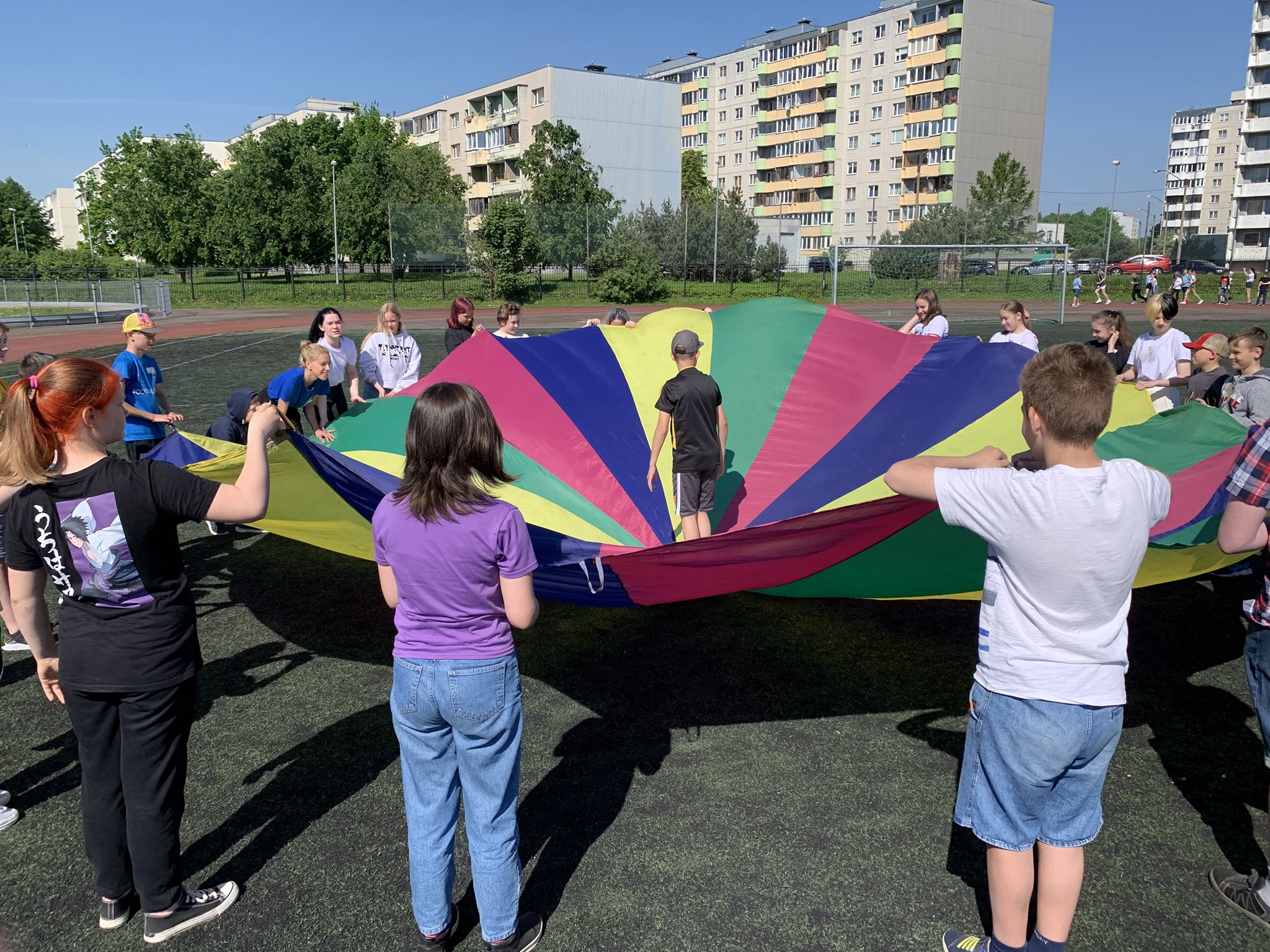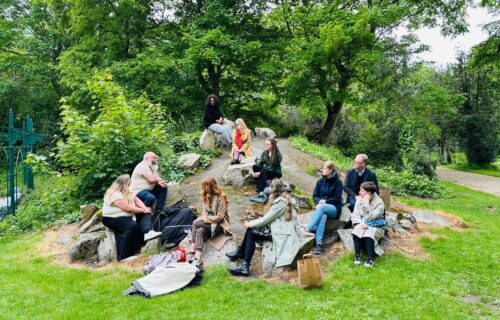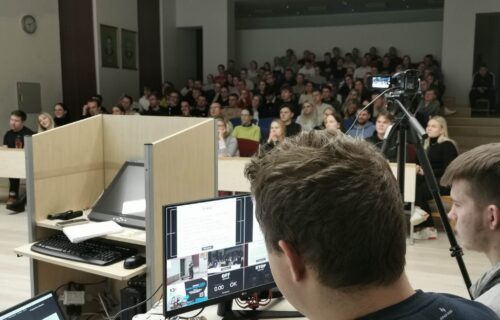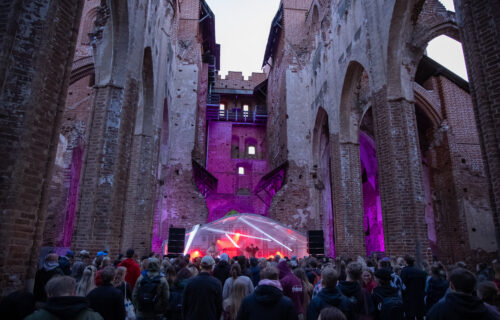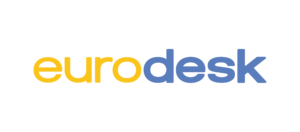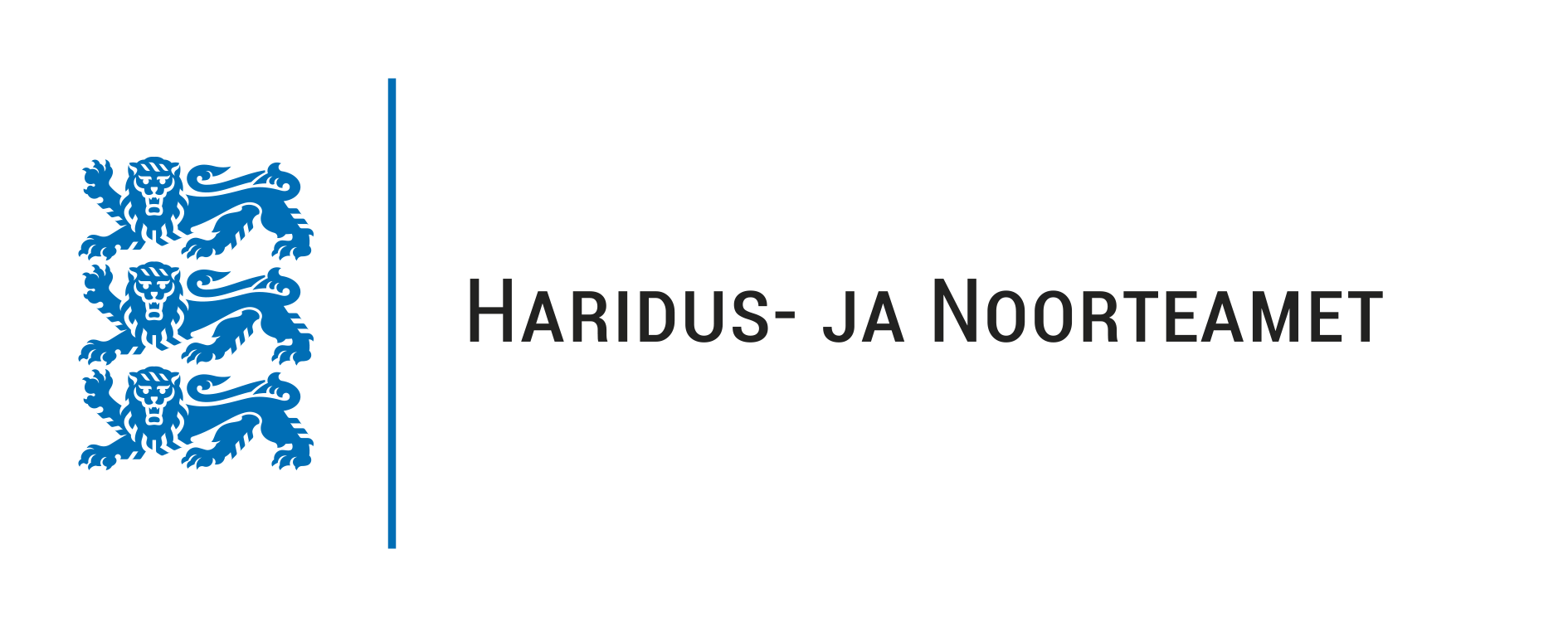Töö nagu tuletõrjebrigaadil – kaasav noorsootöö Lasnamäel
Interview with Darja Djatsenko, the leader of Youth Club Active on the topic of inclusive youth work.
Conducted and edited by Karin Öövel
How do you approach the topic of inclusion in Youth Club Active in general?
In my opinion the term “inclusion” means being equal and having the attitude of partnership. We are doing inclusive youth work here in Youth Club Active through providing a safe and protected place where young people feel welcome. They can express themselves, come up with own ideas and implement them into action. We are just being here for them as support staff. We create a relationship with them through the attitude that we are equal partners.
Unfortunately, the Russian speaking youngsters have a completely different environment at school. With the constant feeling of authority and someone above them, they do not feel trust and protection, they do not want to communicate and express their ideas. They are just doing what they have to do. We, on the other hand, let them speak freely about their opinions, emotions and feelings.
Already before the start of Covid-19 crises we felt that we need to change something in Youth Club Active. We had become like a hub for entertainment offering different activities for active participation, but it did not work anymore. Teenagers from 12 years of age prefer to stay home behind their computers in their comfort zone which does not give them the opportunity for development. People are developing only if they are part of the community and through communication with other people. We decided to try a new system where young people are activating other young people and doing it through individual work and approach. This way the new members can start to express themselves step by step more easily and safely, they don’t feel alone. For 1 and a half years we have implemented this new system.
Can you describe this system more precisely?
We give special attention to each new member of Youth Club Active. We offer first individual inclusion to young people and only after that they slowly become ready to participate actively in the projects and move towards realizing their own ideas. The main support is offered by mentors and tutors. The closest to the youngsters are mentors – young people aged 16-20 who are already or were previously active members of the club and have enough experience to support others. Every new member will have a mentor, a friend with whom they will meet individually to build up a trusting relationship. Mentors receive special preparation and supervision but if they run into trouble then they can always turn to the tutors. Tutors are mainly freelance volunteers (aged 21-40) who are working in some other field but have extensive experience with youth work and wish to contribute to the club. They have been specially prepared with the help of psychologists and are ready to help mentors with more complicated issues.
In cooperation we provide support to the young people to lead them towards active participation.
During this process we notice better the individual needs of young people, their interests and in which way to support them. Based on the small reports from mentors we collect ideas of what kind of topics are most interesting for youngsters and based on this we offer different trainings. For example, the topic of how to apply for university, how to write a CV and how to plan the career are very much in demand at the moment. Sometimes, if we notice problems with mental health or other specific needs of our members then we can direct the youngsters to our partners, for example MTÜ Peaasi. In some cases, we can offer coaching or the help of a psychotherapist.
Please describe your target group? Although you work with a diverse group of people, are there any common obstacles that you can identify?
In my previous application forms for Erasmus+ programme I used to write about obstacles but in real life I would like to avoid speaking about it and giving a “diagnose” to the youngsters. But generally our target group is Russian speaking youngsters aged 11-16 mainly from Lasnamäe, Mustamäe and Maardu. They are not very active and not aware of their opportunities in Estonia, they mostly want to go to study abroad. However, we promote Estonian opportunities and the opportunities of Erasmus+ and European Solidarity Corps.
We involve foreign volunteers into our work which gives the youngsters a clear example and understanding that everything is possible.
On the other hand, the mentors who are participating in Youth Club Active are already quite experienced, involved in different activities locally and internationally and they have received training on different aspects of non-formal education. However, they still often have problems with self-esteem and need support from the tutor. Because of the school system they have taken the role of being perfectionists and are afraid of doing something wrong. The tutors can help them with reflection by asking the right questions about their experiences and open up their eyes. All together we have around 200 members, plus mentors and other support staff.
How are you reaching out to your target group?
We are working a lot with Russian speaking schools to provide them with necessary information. Our trainers who are working in schools on different topics spread information about the opportunities of Youth Club Active. The volunteers club is also going often to schools and talking about the different options. In addition, we make open campaigns a few times a month where we introduce our opportunities. We organise many youth camps in different places in Estonia which also brings youngsters to us. Youth Club Active is part of different kinds of communities like Eesti Noorteühenduste Liit, Vabatahtlike Värav, Avatud Noortekeskuste Ühendus and Eurodesk in order to be more visible, to present ourselves and the new opportunities for youngsters.
We are not posting general calls in social media, instead we are working privately and individually, suggesting different options directly to the young people.
You have been very active in Erasmus+ and European Solidarity Corps programmes – how difficult is it to involve Russian speaking youth into international youth work?
First of all I must say that because of Covid-19 we have shifted our focus more to the local projects, mainly youth meetings and solidarity projects. Last year we also sent a few volunteers abroad and participated in an Erasmus+ KA2 project, that is all. The drop in the number of Youth Exchanges is the biggest pity.
Nowadays people have too many stereotypes, especially parents, and we are not able to change this.
We are doing Human Library but this is not enough to explain that people are different and we are equal in that. Parents are making a lot of trouble for us – they are not supporting youngsters and they make pressure with their wishes. If a young person wants to go to the voluntary service then it is not the young people who we need to work with, it is the parents. At least the new system that we have created helps us a little bit because youngsters feel more freedom and they have the courage to listen to themselves and to their needs.
Another obstacle is the quality of Erasmus+ projects. We have discovered that some of our partners who are in general very reliable, do not understand the principles of non-formal education: they do not know about the need for reflection, they do not know how to support youth initiative and active participation etc. When we emphasize the need to take the time to let the young people get to know each other, teambuilding and creating cooperation then our partners do not always share our opinion. It is very hard to be inclusive if I cannot trust my partners or receive negative feedback about the quality of the projects.
What are the solutions? What kind of support do you offer for the participants in the programmes?
One solution could be stronger sending organisations. For example, we have created a system of preparation for each group going abroad. We introduce them to the importance of non-formal education and how they can put their knowledge into practice. Unfortunately, the schools are not paying enough attention to life skills. For example, a youngster can have 5+ in English but is not able to speak the language in the project. This preparation is done by someone who already has experience with the programmes. We also provide training for group leaders, giving them instructions about the programme and their responsibilities.
Even more important is the reflection after the activity.
Most important is to not leave the participants alone with their experience. Maybe it was even a bad experience: for example the youngsters come back and start to complain about the schedule of activities or how everyone was all the time late for the activities… Reflection helps us to understand that we are all different and instead of judging others we need to adapt to different environments and change our own attitudes. If young people wish to work in the future in a multicultural environment then they need to learn how to deal with different people, how to communicate and to live with them. Every project brings something new but it can only be understood and learned through reflection. It needs to be very clear for the participants that we are not participating because of travelling but personal development. It is totally possible to change your life in one week – Youth Club Active will be there to help to reflect on the experience.
The most important key to inclusion is to support the participants from the preparation until follow up with a strong focus on reflection.
What is for you the indicator of a job well done?
The best outcome would be if the young people want to participate again and again, and even better if they want to submit their own ideas in action. It would also be a positive outcome if they wish to become group leaders or if they start to believe in Erasmus+ and promote it non-formally. How I can measure the results of our work is through real actions after the project (and it is not a post on Facebook). Has this experience inspired them, have they become more open-minded, have they started to implement different activities in Youth Club Active – it is very individual. We hope that international experience makes them feel more freedom about their options, gaining experience abroad and implementing it in Estonia.
What kind of advice would you give to other organisations who would like to involve Russian speaking youngsters into their activities?
From our experience and also from our partners we have heard that the main problem is that Estonian organisations do not want to cooperate with Russian speaking organisations. Usually when they already see that we are reliable then they can change their attitude and are more likely to cooperate. But for more than 5 years we are looking for Estonian speaking volunteer to join Youth Club Active but we are not able to find anyone. It is very one-sided: the Russian community is all the time inviting Estonians for cooperation, but it does not work vice versa. When we are organising youth meetings between Estonian and Russian speaking groups then we do not have any problem to gather the Russian speaking youngsters. But our Estonian partners always have a lot of trouble in finding the participants and even if they do, then a few days before the activity many Estonian youngsters just disappear.
It is like two different worlds. And it is not about the language, it is about inclusion. Russian youngsters are not going to participate if they feel that they are not welcome and not fully included.
How can we create a supportive environment then?
First, we have to break stereotypes among youth workers and then we need to break these stereotypes among young people. There are no good and bad people. For myself I can say that I do not feel excluded, but youngsters do not feel the same. If we do not create a supportive environment together then young people will start to leave. How to do this exactly, I cannot say. The situation in Russian schools in Lasnamäe is very bad, even more than bad – they are very excluded. We need to start there. Although there are many options for Russian speaking youngsters to take part in the society and participate in activities which mostly involve Estonian speaking youth, there is no information about these possibilities in schools. Schools are not giving the floor for exchange and Russian youngsters do not have information. If schools are not cooperating then for us as youth workers it is even more hard.
We are like a fire brigade, nothing else. But I deserve to do strategic plans for the future, not to be all the time running with water. Only together we are able to do something and we really need to focus on education. We are missing something, something much more deeper than language.
If you are interested in how to make your own youth work more inclusive, check out our guidelines and recommendations here.




